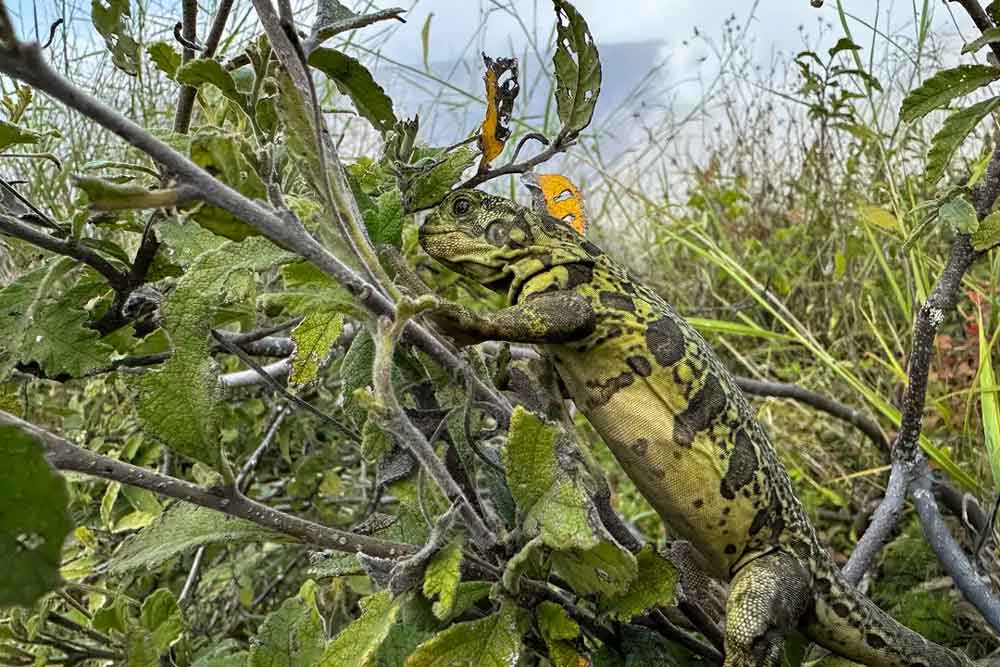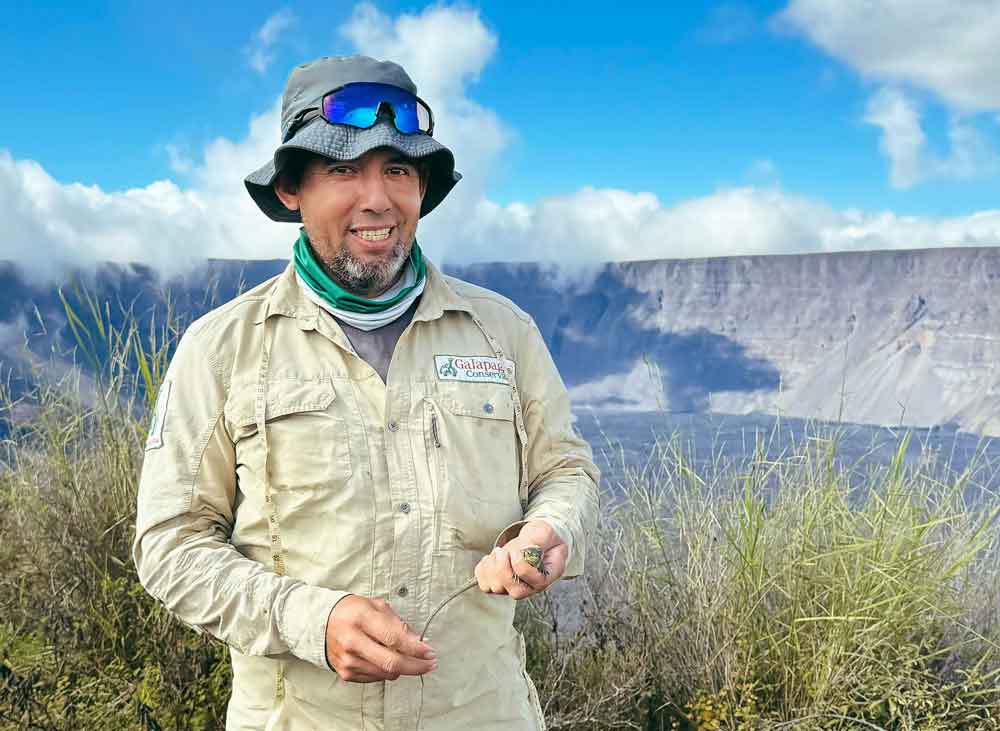During the conservancy's most recent expedition in May, two more hatchlings were found alive and doing well.
The Galápagos Conservancy announced in March 2025, scientists with the conservancy rediscovered a hatchling Galápagos pink iguana that has survived in the wild, weighing more than 2 kilograms. And during its most recent expedition in May, two more hatchlings were found alive and doing well.
“Seeing those tiny iguanas with my own eyes was a moment I’ll never forget,” Roberto Jiménez, Conservation Team Member, Galápagos Conservancy said in a news release on the conservancy website. “After all the effort, finding them alive, in such an extreme place… it was the sign we needed to keep believing that there’s still hope.”

A hatchling pink iguana. Photo ©Galápagos Conservancy
Today, Jiménez was honored by the Galápagos Conservancy for his more than 20 years of experience as a Galápagos park ranger. He played a huge role in rediscovering the iguana hatchling, hearing the reptile and guiding the team to its location on the volcano. “That moment I saw those pink iguanas reminded me why we do this work—and who makes it possible, Jiménez said. It’s your belief that keeps hope thriving in these islands.”
“For years, our dedicated teams have returned again and again—installing camera traps, collecting genetic samples, exploring nesting areas. There were no guarantees—only the conviction that the effort was worth it, the conservancy wrote on its website. Today, that conviction is paying off. The recent discoveries confirm that there is hope for the pink iguana. Although threats remain—especially from feral cats—each new observation strengthens our resolve. We will continue monitoring, learning from their behavior, and acting decisively to protect them.”
Galápagos Pink Iguana Information
The Galápagos pink iguana is known to occur only on Wolf Volcano on Isabela island in the Galápagos Island chain. Critically endangered, the reptile has a pink body with dark stripes. It was discovered in 1986 and identified as a separate species from the Galápagos land iguana in 2009. It is estimated that there are about 200 mature adults in the wild.



